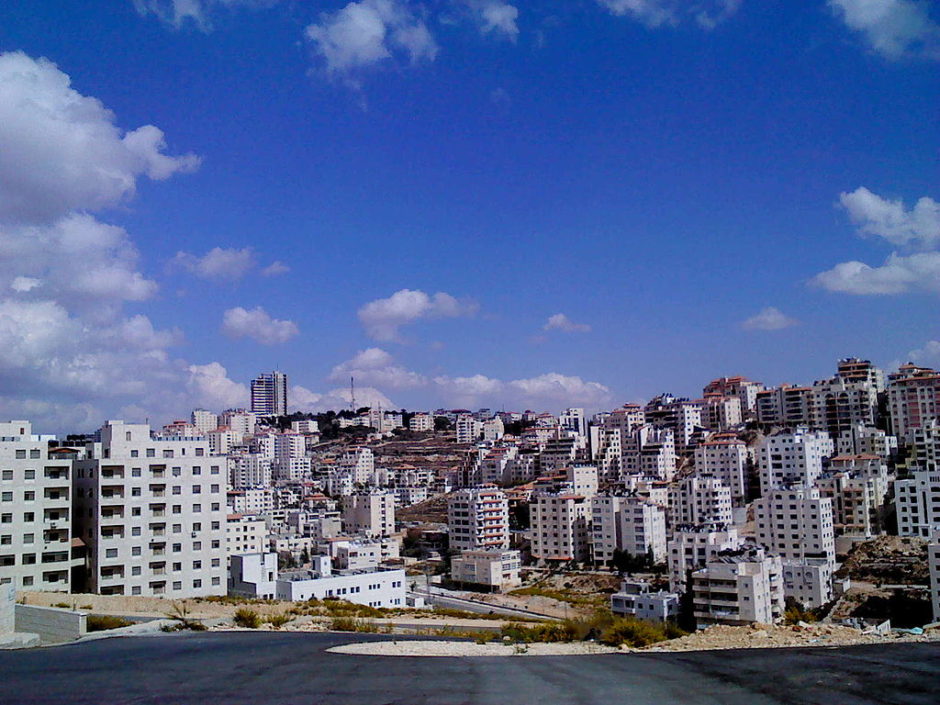Canada’s only overseas “representative office” is located in the West Bank city of Ramallah, the administrative capital of the Palestinian Authority, and is headed by a Canadian diplomat who joined the Department of External Affairs 31 years ago.
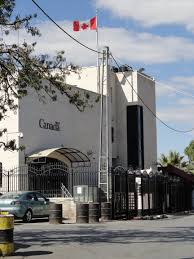
Douglas Scott Proudfoot, the Representative of Canada to the PA, has been in charge of the Representative Office of Canada since 2016. The Canadian government established its diplomatic presence in Ramallah in 1999, six years after Israel and the Palestine Liberation Organization formally launched the Oslo peace process.
The Palestinian General Delegation, which opened in Ottawa in 1995, represents Palestinian interests in Canada.
Forty nine countries have resident missions in Ramallah, most of which have diplomatic relations with Israel. A few, like Morocco, Qatar, Oman, Tunisia and the United Arab Emirates, have no formal ties with Israel.
Canada’s mission in Ramallah, which began with two Canadian diplomats and four local employees, is now staffed by 11 Canadians and 21 locals. “It’s not an embassy, nor is it a consulate,” said Proudfoot, who was in Toronto the other day to address a parlor meeting of Canadian Friends of Peace Now.
But for all intents and purposes, it performs the functions of an embassy. As he put it, “It looks like an embassy and quacks like an embassy.”
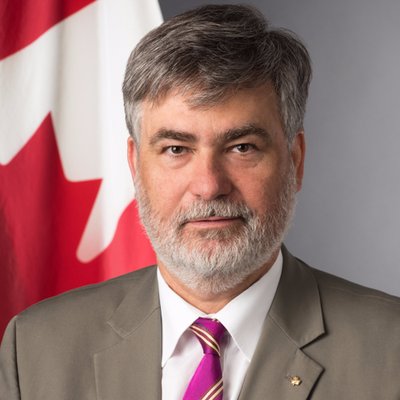
Asked what role Canada’s Ramallah office plays, he replied, “We’re there to support a two-state solution and the peace process.”
Proudfoot, who deals exclusively with the West Bank, East Jerusalem and the Gaza Strip, is in touch with the PA and a host of non-governmental organizations. He has no contact with Hamas or the Popular Front for the Liberation of Palestine, both of which oppose Israel’s existence and are regarded by Canada as terrorist organizations.
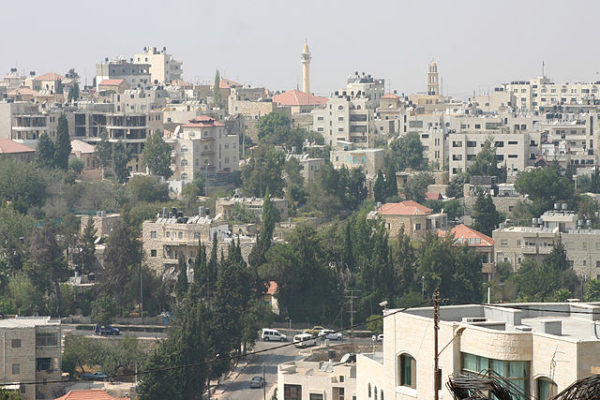
His office, found in a modern building at 12 Elias Odeh Street, is a hive of activity.
“We do political reporting and public and diplomatic advocacy in support of a peace process and a two-state solution,” which, he concedes, is ebbing.
The Canadian embassy in Tel Aviv is in direct communication with the Israeli government.
In addition to dispensing consular services, the Ramallah office runs a $65 million development program, encourages the formation of Palestinian institutions and promotes economic growth. “A viable state needs viable institutions and a viable economy,” said Proudfoot, whose previous postings were in London, Nairobi, New Delhi and Vienna. “There’s a strong entrepreneurial spirit in the West Bank, but it’s constrained by Israel’s occupation of the West Bank.”
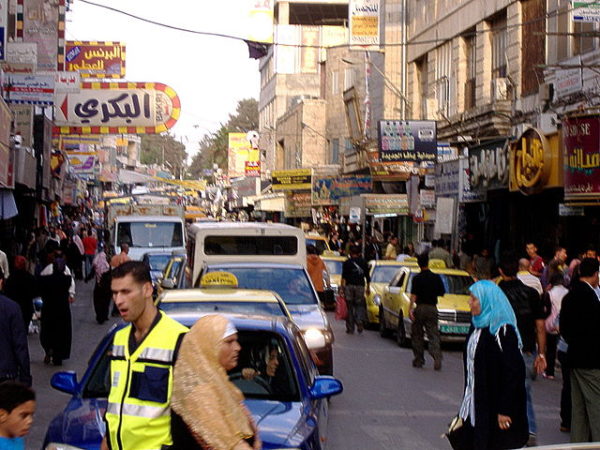
To his regret, the volume of Canada/PA trade is less than $5 million annually. “There’s practically no trade between the West Bank, Gaza and Canada, but I’m trying to encourage it,” said Proudfoot, adding that a Palestinian trade delegation visited Canada in January. The chief Palestinian exports to Canada are olive oil, zaatar and handicrafts, but he thinks that Palestinian beer and wine could easily crack the Canadian market.
Although the peace process is dormant today, Proudfoot believes that Mahmoud Abbas, the president of the PA, is committed to it in principle. But Abbas, having been weakened by corruption within the PA and the PA’s failure to deliver statehood after 25 years of on-again, off-again negotiations with Israel, may not be able to sell a peace treaty to the Palestinian masses.
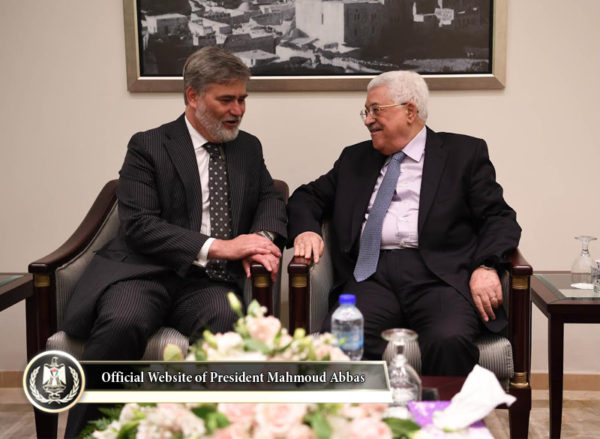
He rejects the notion that the PA, Israel’s partner in security cooperation, is a sub-contractor of Israel’s occupation.
To his regret, the concept of a two-state solution is “living on borrowed time.” Nonetheless, it’s the best possible method of resolving the Arab-Israeli conflict, since the vast majority of Israeli Jews would overwhelmingly reject a binational secular state in place of Israel.
The two-state solution, however, faces formidable obstacles.
The abysmal lack of mutual understanding between Israelis and Palestinians is definitely a roadblock, while the anti-normalization movement in the Palestinian community is a “strategic mistake” because it undermines the very idea of peace.
The Boycott, Divestment and sanctions movement, widely supported by Palestinians, is not helpful either. Although the PA boycotts goods made in Israeli settlements, 90 percent of its trade is with Israel, he pointed out.
BDS deepens Israel’s sense of insecurity. This means that Israel is less likely to agree to “painful concessions” for the sake of peace.
Israel’s network of settlements, particularly those deep inside the West Bank, are also an impediment on the road to peace and a contiguous Palestinian state. But since most Jewish settlers reside in settlement blocs near the Israeli border, land swaps between Israel and the PA are still a possibility.

“Eighty percent of the settlers could be transferred back to Israel,” he said, echoing a theme advanced by some Israeli politicians. “The majority of settlers are people who just want a place to live.”
Israel’s insistence on retaining a military presence in the West Bank’s Jordan Valley could be a hard sell for the PA, he noted. And though a solution must be found for the Palestinian refugee problem, the refugees will not be permitted to return to their former homes in what is now Israel. “It won’t happen,” he said.
“No Palestinian government can write off its claim to Jerusalem, but Israel won’t accept less than de facto security control of the city,” he went on to say.
If Hamas is to be a player in determining the outcome of the Arab-Israeli dispute, it will have to recognize Israel, disavow terrorism and accept agreements signed by Israel and the PA, said Proudfoot.
The current humanitarian crisis in Gaza, characterized by high unemployment and shortages of electricity and food, is exacerbated by Israel’s blockade, which has been in effect since Hamas’ violent seizure of power 11 years ago. Given Hamas’ unremitting hostility to Israeli statehood, Proudfoot understands why Israel has imposed a siege on Gaza. Nevertheless, the blockade damages Gaza’s economy.
According to Proudfoot, there is a dawning realization among Palestinians that non-violent resistance to Israel’s occupation is “the way to go.” Having been bloodied by the first two Palestinian uprisings in 1987 and 2000, many Palestinians realize they cannot defeat Israel.
He urges the Palestinians of East Jerusalem, most of whom are permanent residents of Israel, to rethink their boycott of municipal elections. He described their position as “extremely unwise.” Palestinian access to municipal services would be enhanced by their participation in elections, he said.
